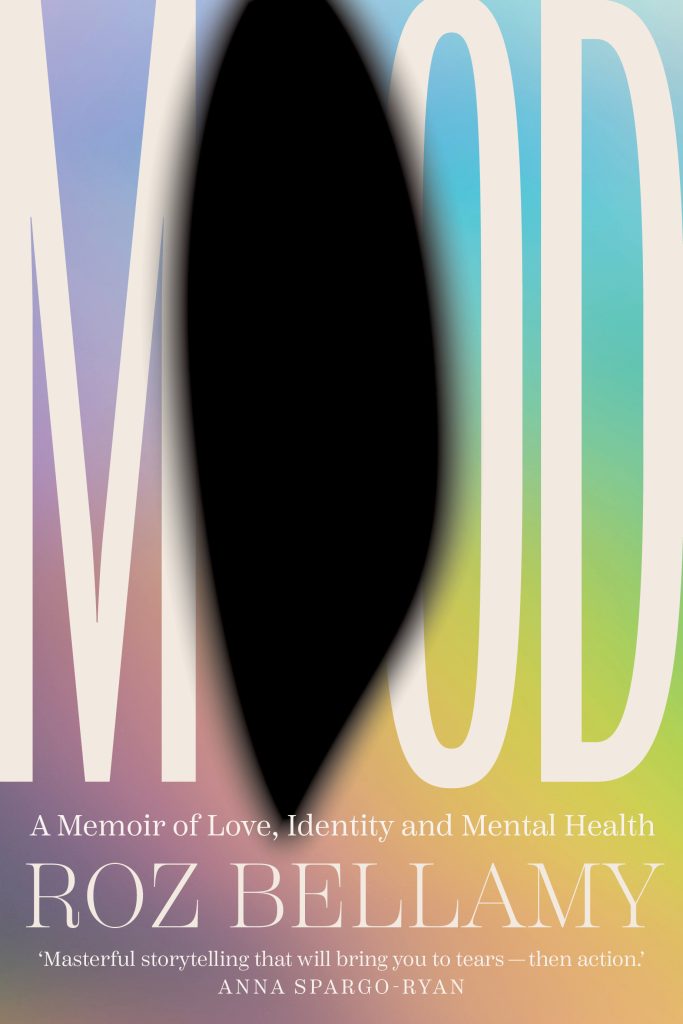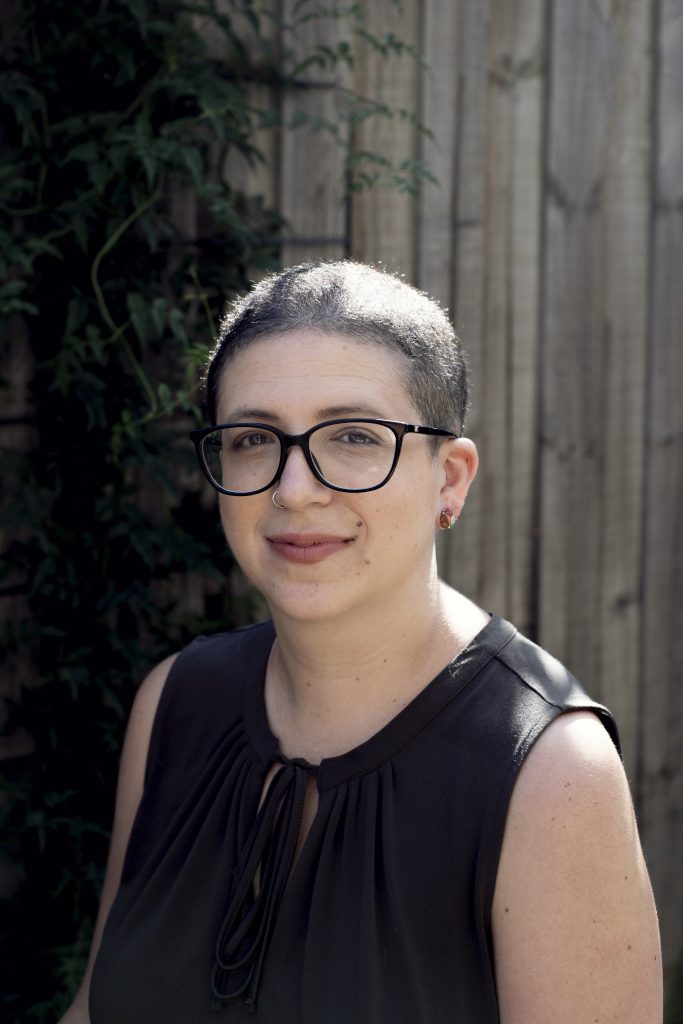I’m magnetised by sad stories, and collect them the way I imagine a comedian gathers humorous anecdotes. I offer them up like a depressing form of stand-up to loved ones, who aren’t always appreciative.
In my memoir, Mood: A Memoir of Love, Identity and Mental Health, I quote my wife telling me I’m like a moth to a flame when it comes to trigger warnings on the internet. If someone warns me that something is distressing, I’m going to read it.
Writing distressing material, however, is another story. As I worked on drafts of Mood, I found myself delaying writing some sections that I knew needed to be there.
I wrote the following in an essay for Kill Your Darlings about trying to write those parts while I was participating in a writing workshop.
Sometimes we were given a prompt to work on outside of class. These were often the most difficult, including one that truly stumped me: Write the truth about something you haven’t wanted to write…
Nothing came, except some flat sentences. I even typed myself a piteous note. I went into the kitchen and retrieved a block of cheese from the fridge. That didn’t help, either… I went out to the balcony with a glass of wine, a bowl of olives, and my notebook, set up in front of the view, and started to write. Surely being tipsy would help with a painful prompt? It didn’t…
Memoir writing can be heavy, so avoidance does not only seem tempting at times but essential. I was writing about topics that included my sexuality and gender identity, the death of my grandparents, the bullying I had experienced throughout my schooling, and my mental health. It was easy to convince myself that I needed – no, deserved – a break.
Avoidance wasn’t the only technique I used, fortunately, or the manuscript would have taken years longer.
Sometimes I treated myself as a ‘method writer’, using whatever I had at my disposal to access past versions of me. I retraced my steps, writing in locations close to where events relevant to Mood had transpired. If I found a setting evoked a particular trauma, I spent more time there. I used each of my senses to fully inhabit the memories, from fragrances to songs and tastes. The words usually flowed freely, but I was left feeling adrift afterwards. I had opened up the memories, but to what end?
*
Some of the material in Mood that was hardest to write didn’t make it through the editing stage. My editor felt that the sections about grief didn’t need to be so long, and suggested I prune anything that didn’t tie back to the central story and themes of the book.
One of the scenes we cut was one of many about my grandfather’s decline. It captures the way that I turn to writing in times of distress.
I walked to the nearby Central Park Mall, a flashy new shopping centre that hadn’t been there when I studied at the university across the road, and walked around the shops, trying to soothe myself. I went up to the higher levels and looked at makeup in a few shops. I wondered if covering my face would make me feel any different. Maybe it would push aside my sadness.
I headed down to the Woolworths at the bottom level and looked around for something that might cheer me up. There were plump, bright mangos for sale that were soft and fragrant unlike the hard, green ones back in Melbourne. I bought an oddly shaped one and retreated to my room at the hostel.
I opened my laptop and wrote out the interaction I’d had earlier. It spilled out onto the page and once it was out, I saved and closed the document. I ripped into the mango – I’d forgotten to buy a spoon or knife – and ate the sweet flesh, crying and shuddering.
I still remember this moment, and the way I tucked my laptop away out of sight after I finished writing about my encounter with him. I didn’t look at the scene I’d written until about five years had passed. Writing out my sadness and grief that day had been a frenzied act – one of desperation. It had nothing to do with being a writer and consciously processing my sadness into a narrative arc. Instead, I was using narrative as a survival tool in my state of pain.
*
A few years after I began working on my memoir, I started a PhD looking at the benefits of engaging in life writing for LGBTIQ+ young people, particularly for mental wellbeing. Much of the research literature, and my study’s findings, resonated with my own personal experiences – that life writing is an effective way to process one’s identity and subjectivity, gain or regain agency, and make sense of challenging life experiences.
Now, a year after my memoir was published, and after finishing my PhD, I think about capturing sadness and pain very differently.
One thing I learned in my PhD research process was that you have to be ready to write about trauma you’ve experienced.
Melissa Febos writes in her essay ‘The Return: The Art of Confession’:
An understanding of the safety necessary to confront trauma partially undergirds the advice to write memoir with a substantial temporal distance from the experience. So much of what we memoirists write about qualifies as trauma; it is sound advice. Sometimes the art is first an art of patience. If we try to write the story of our trauma before we have established a certain degree of psychological and physical safety, we risk doing ourselves more harm.
I know now that when I was sitting on that balcony, hoping that drinking wine would help me “Write the truth”, I was nowhere near ready to tell that truth. I was studying teaching, knowing deep inside that I didn’t want to teach, not knowing my memoir would end up being about the way teaching would exacerbate my mental health issues until I had a severe illness. All I knew at that time was that each letter on the keyboard took me closer to somewhere I didn’t want to go.
*
Fiona Murphy, author of The Shape of Sound, offers useful advice on writing about hardship:
I created a firm rule: every anecdote had to earn its keep. There needed to be a clear reason for including personal information, it would either have to propel the narrative along or help explain something.
To know whether an anecdote “worked” in the manuscript, I’d write an outline of the experience. I’d insert that rough thumbnail sketch into [the] manuscript and keep working around it. Once I had finished a draft, I would reread the chapter and see if it had earned its place. Only then would I flesh out the memory in more detail or cut it. This process meant that I was still having to deeply reflect on my life experiences, but I wasn’t necessarily having to “relive” everything during the writing process.
My writing process, now, is a little kinder. Like Murphy advises, I try to map out what the traumatic or distressing scenes will be in a narrative, and while I’m not quite as organised as writing thumbnail sketches, I can at least plan ahead for writing them.
Regular therapy, medication, and connecting with loved ones are essential parts of writing for me, whether it’s difficult material or otherwise. My mental health is more important than getting words on a page, although the act of writing can also improve my wellbeing if I follow the process I just described.
Whether it takes days, months or years to write certain stories, especially where trauma is involved, I give myself the time and space until I am able to see them anew, to find the metaphors and poetry in them, where possible. The sadness is still there, but I’ve had some time to process it. Along with being traumatic stories, I find they also reflect endurance and survival, and sometimes even self-pride.
Roz Bellamy (she/they) is a writer and researcher based in Naarm/Melbourne. Roz’s book, Mood: A Memoir of Love, Identity and Mental Health (Wakefield Press, 2023), explores the intersections of mental illness, Jewish and queer identity, and intergenerational trauma. Mood was shortlisted for the 2024 Young Jewish Writers Award in the Shalom Australia Jewish Book Awards. Roz’s nonfiction writing has been published in The Big Issue, The Age, SBS, the Guardian, Kill Your Darlings, Meanjin and Huffington Post, and in the anthologies Growing Up Queer in Australia (Black Inc.), Going Postal (Brow Books) and Living and Loving in Diversity (Wakefield Press).


Thank you for this Roz. For sometime have been working on a fictional recreation of a traumatic time in my life. I find incredible resistance to facing many painful episodes. It is comforting to know that others such as yourself have confronted this procrastination and come through. You deserve accolades for conquering the resistance all the way to publication.